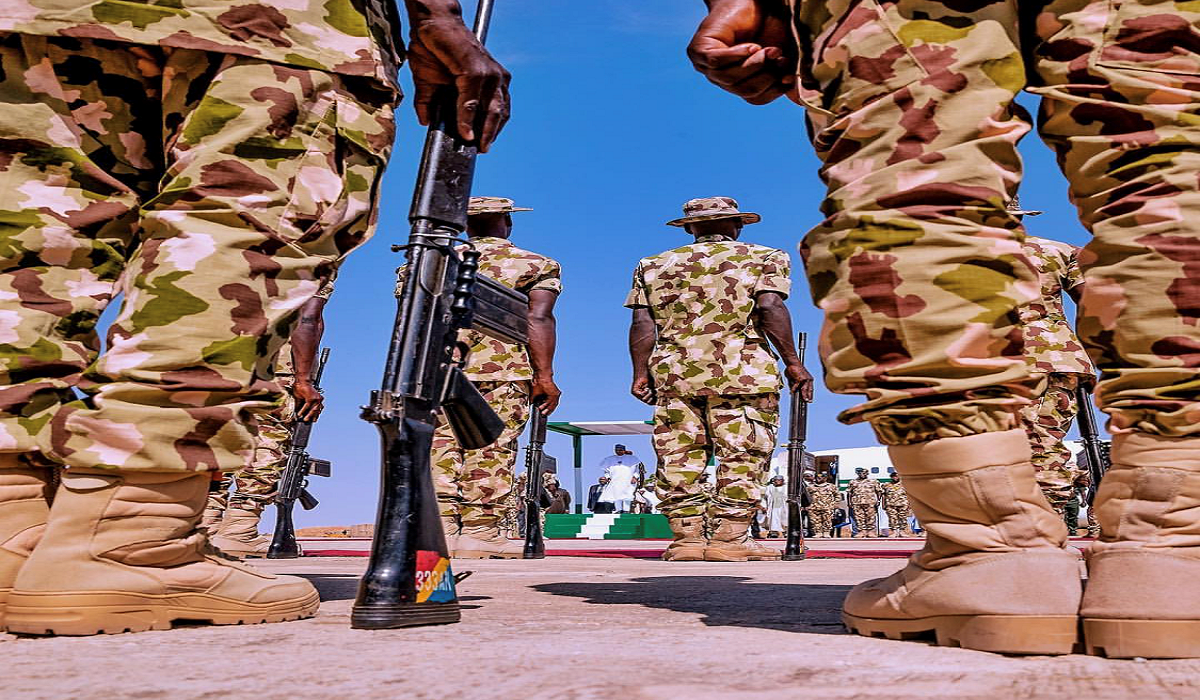

Nigeria imported arms and ammunition worth N15.8 billion in the first half of 2022, representing a 60.3% decline compared to N39.8 billion recorded in the corresponding period of 2021.
This is according to the breakdown of the foreign trade report released by the National Bureau of Statistics (NBS).
Compared to the second half of 2021, Nigeria’s ammunition import declined by 71.8% from N56.1 billion recorded between July and December 2021. On an annual basis, a total of N72.49 billion was used to import weapons in 2021 as against N29.34 billion and N12.77 billion recorded in 2020 and 2019 respectively. In 2018 only N1.95 billion was used to import weapons into the country.
The increase in the purchase of weaponry is following worsening security challenges in the country, especially with the rising incidents of Boko Haram attacks and banditry in the northern region, while gunmen attacks and kidnapping continue to ravage the southern area.
Meanwhile, weapon import has decreased significantly in the review year, despite lingering security concerns affecting the lives of the populace as well as the economy. The food-producing region of the country has suffered various attacks in the past 11 years, causing a significant setback in the agricultural sector.
According to the United Nations Development Programme report titled; “Assessing the impact of conflict on development in North-East Nigeria” the country has lost an estimated 350,000 people to the conflict in the Northeastern region, with 314,000 deaths from indirect causes as of 2020.
The multiple attacks on farmers and villagers in the northern region of the country have impacted the food supply chain in the country, resulting in significant hikes in the cost of food items despite having an agricultural sector that accounts for over 25% of the annual real GDP.
Although the National Bureau of Statistics (NBS) did not give reasons for the decline in arms import, it could be as a result of a cut in the government’s expenditure or improved domestic production of weaponry.
Domestic production of weapons
Recall that President Muhammadu Buhari in a statement at a two-day ministerial performance review retreat, organised in 2021 to assess the progress made towards the achievement of the nine key priorities of his administration noted that the federal government is ready to de-emphasise dependence on foreign supply of military weapons to fight security challenges facing the country by commencing domestic productions.
He instructed the Ministry of Defense during the meeting to create a modest military industrial complex for domestic production of weapons, to meet some of the requirements of the Nigerian armed forces.
The President had initially directed the ministry at the beginning of his first tenure in August 2015 to produce a plan for the establishment of a military-industrial complex for the local production of weapons for use by the nation’s armed forces.
A brief history of the local production of weapons in Nigeria dates back to 1964, with the establishment of Defence Industries Corporation of Nigeria (DICON). Fritz Werner, a West German manufacturing firm, was its technical partner which was assigned the task of providing technical expertise and setting up the ordnance factory in Kaduna.
Over the years, the progress made in this area has been abandoned due to neglect by the government, while the military has been left to rely on the importation of arms and ammunition. However, the rising incidence of insecurity in the country has necessitated the need to revive the domestic production of weapons.
The federal government earmarked N1.19 trillion for the ministry of defence in 2022 compared to N966.41 budgeted for the ministry in the previous year. Out of the amount allocated to the ministry, N197.05 billion was earmarked for capital projects.
A further breakdown of the budget document shows that N2.43 billion was budgeted for the purchase of ammunitions, N3.35 billion for the installation of ADV weapons simulator at the New Nigerian Army School of Infantry Complex.
Why this matters
Nigeria’s importation of arms and ammunition has dwindled in recent times compared to the previous year despite the rise in total imports, a development which could be due to improved domestic production. Increased domestic manufacturing of weapons in the country will help improve the manufacturing and assembly industry of the economy, whilst reducing our reliance on importation, which would in turn create more jobs, reduce import bills, and strengthen the military further.
|